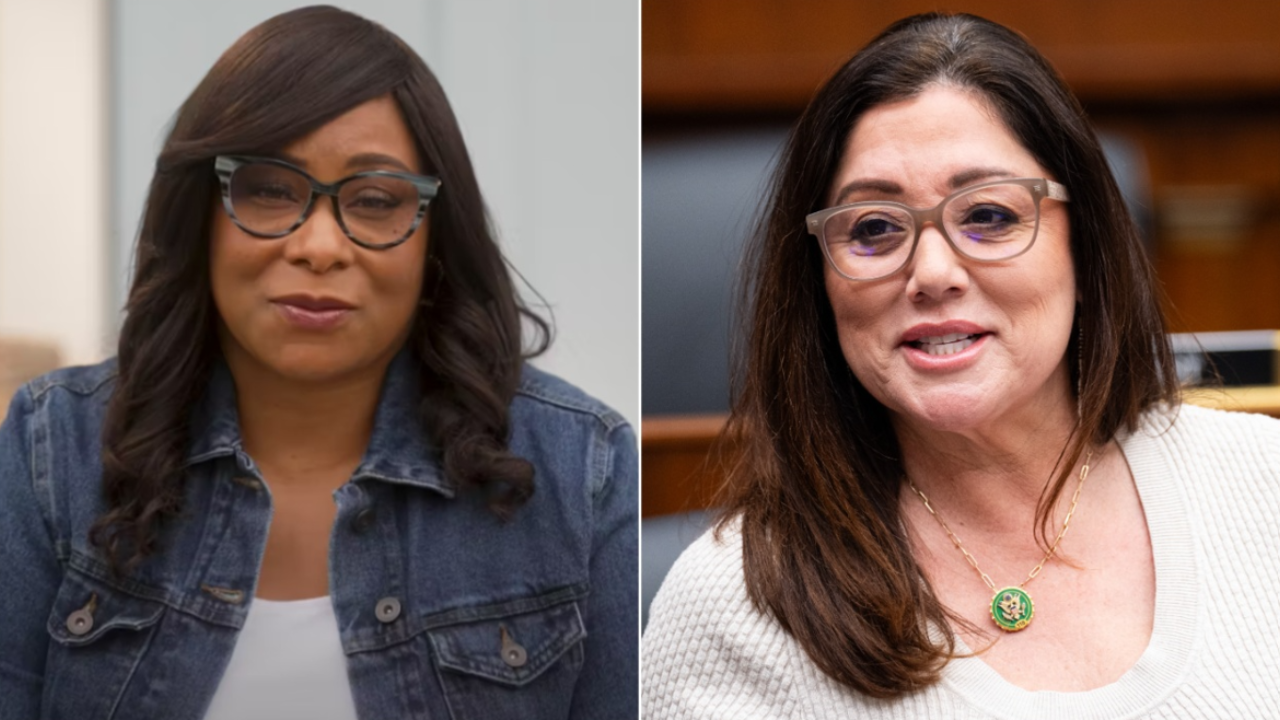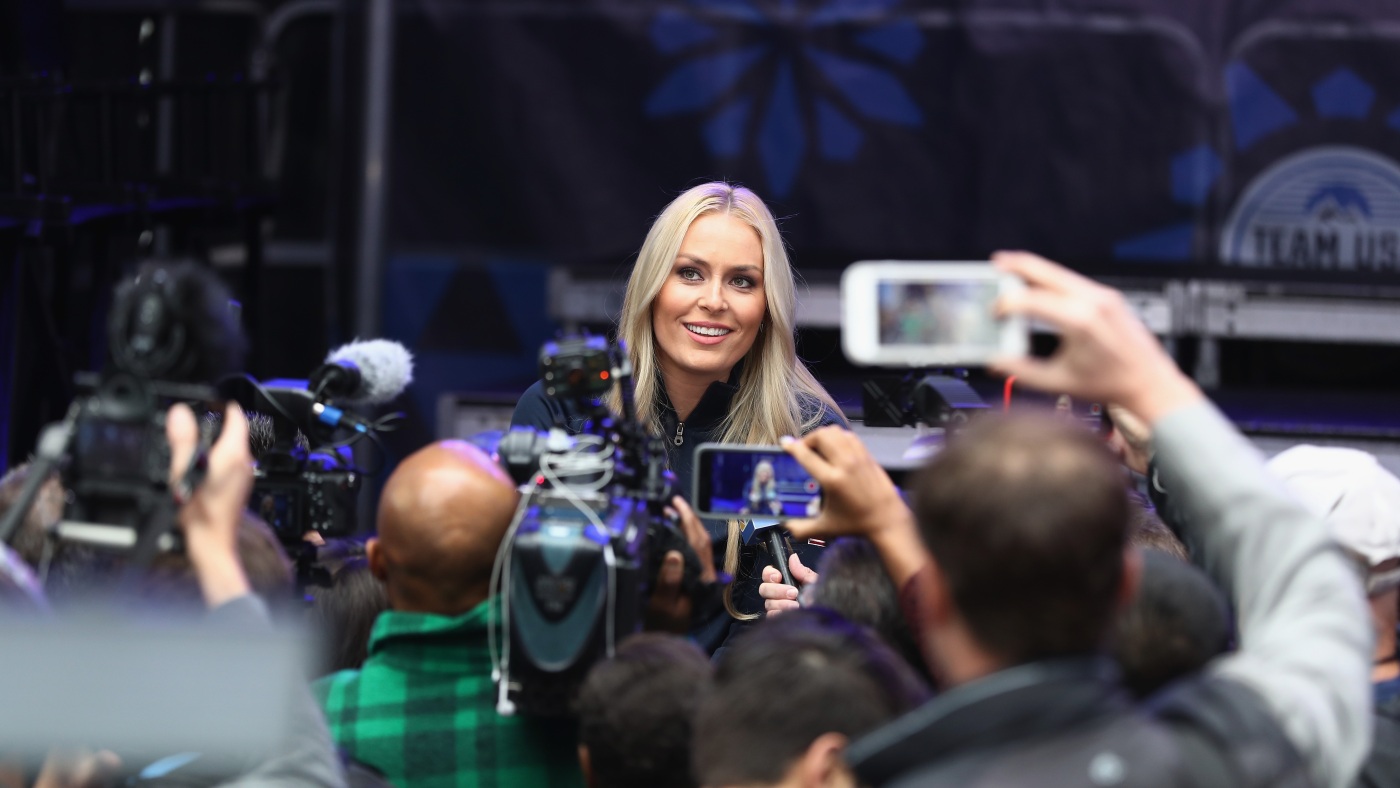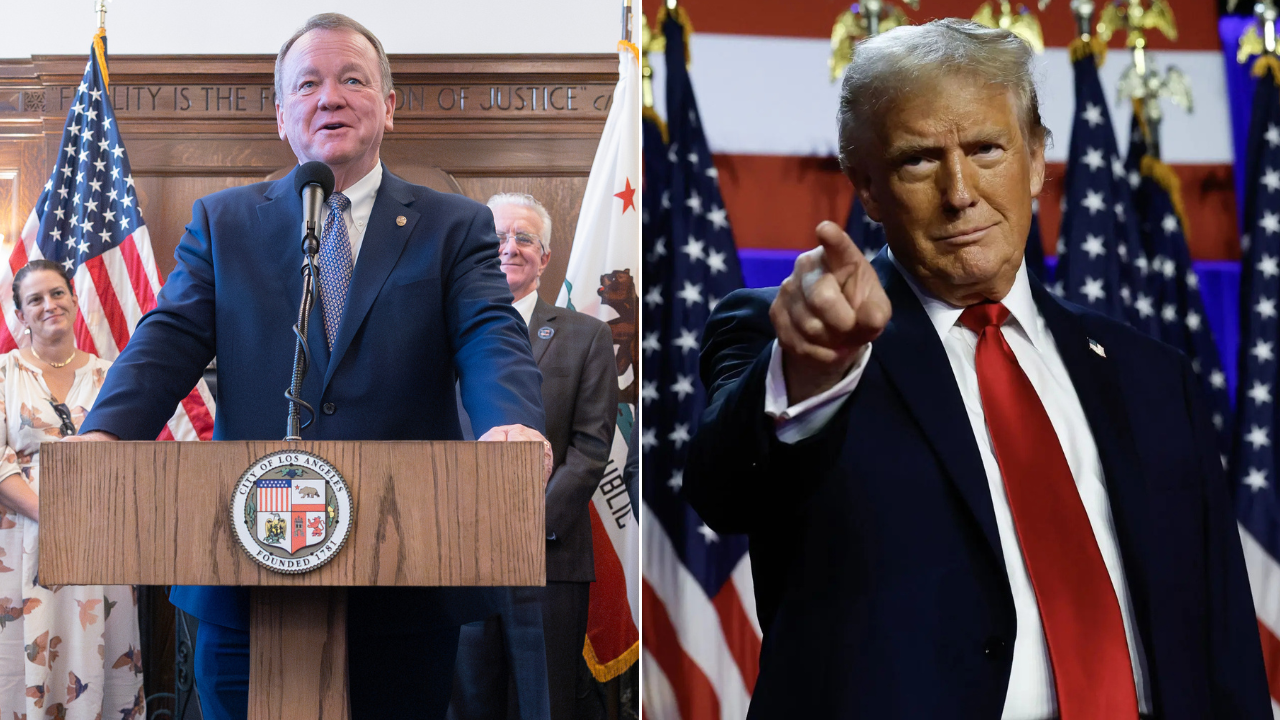Lifestyle
Any tips on having difficult conversations during the holidays? We want to hear

Central American immigrants and their families pray before Thanksgiving dinner on Nov. 24, 2016 in Stamford, Connecticut.
John Moore/Getty Images/Getty Images North America
hide caption
toggle caption
John Moore/Getty Images/Getty Images North America
November marks the beginning of a slew of holidays and celebrations with our loved ones. The time between Thanksgiving and the New Year can be an opportunity to come together with people we haven’t seen in a while and catch up. But on the heels of the presidential election, differences in view could cause conflict. Ahead of these gatherings, the Up First newsletter team wants to hear from people who might have had disputes during past holiday celebrations. Your tips could help families and friends smoothly navigate complicated conversations.
If you have experienced a dispute during holiday celebrations, share your advice with us via the form below, and you could be featured in the Up First newsletter on Nov. 24. You can also share a photo and upload your answers as a voice memo. Please submit responses by Nov. 18.
See some of your responses — and get the news you need to start your day — by subscribing to our newsletter.
Your submission will be governed by our general Terms of Use and Privacy Policy. As the Privacy Policy says, we want you to be aware that there may be circumstances in which the exemptions provided under law for journalistic activities or freedom of expression may override privacy rights you might otherwise have.

Lifestyle
'Wicked' Star Cynthia Erivo Says She Still Gets Nervous When She Sings
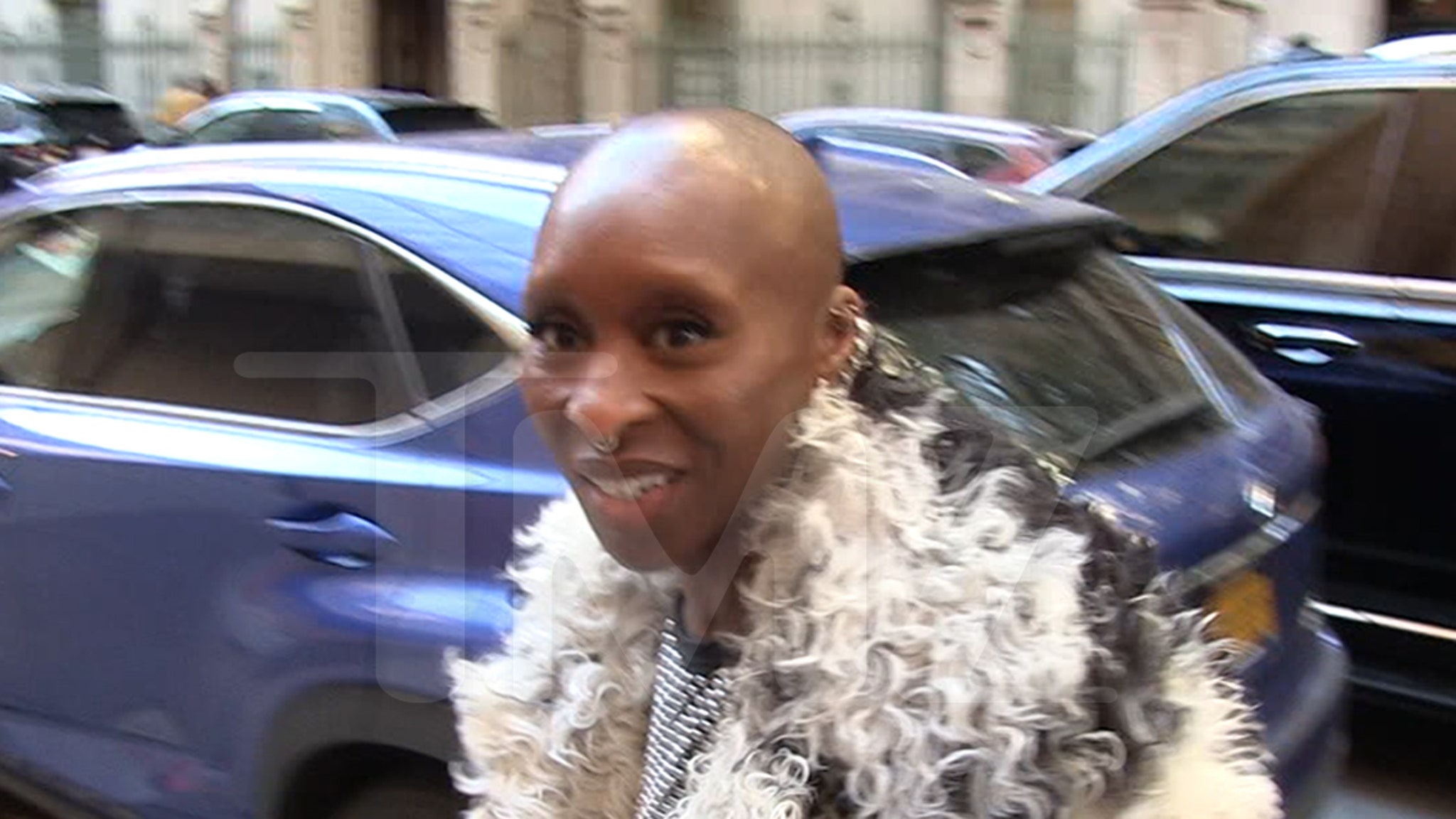
TMZ.com
Cynthia Erivo is a Grammy award-winning singer, but she still gets nervous when she has to show off her pipes … admitting as much on camera.
We got the “Wicked” star Wednesday at ABC Studios in New York City and our photog asked her about her live, impromptu duet with costar Ariana Grande on “TODAY” … when they sang Chaka Khan‘s “I’m Every Woman” for Hoda Kotb and Savannah Guthrie.
NBC
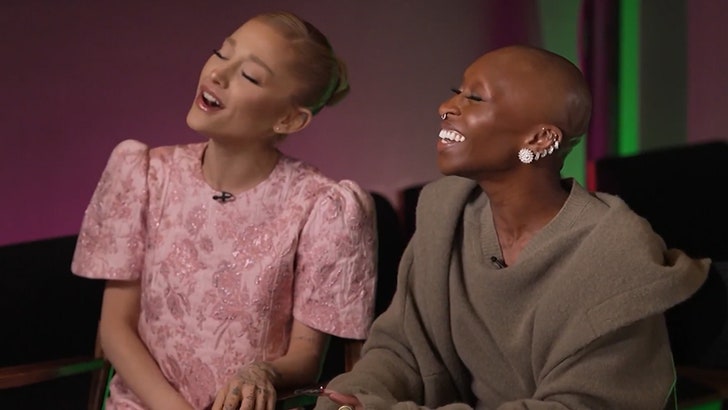
Cynthia says she still gets nervous every time she sings … and it was no different live on air.
Despite the nerves, Cynthia and Ariana hit a home run with their acapella cover of Chaka’s hit … explaining ‘Every Woman’ is the song they can’t help but sing when they’re around each other.
TMZ.com
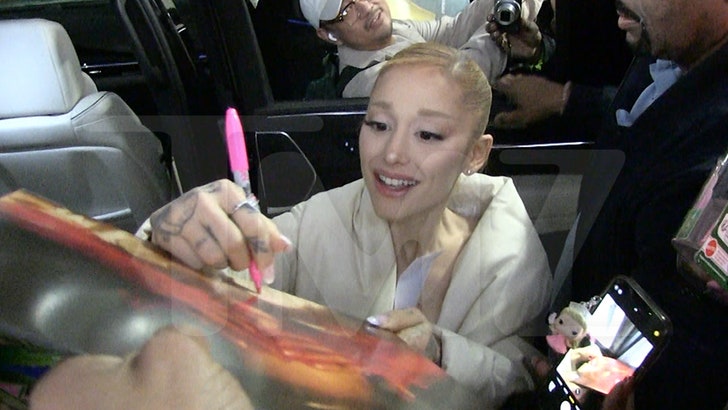
11/12/24
We also got Ariana in the Big Apple this week, where she was mobbed by fans on her way out of NBC.
Ariana graciously signed autographs — mostly ‘Wicked’ merch — and took photos with fans before hopping into her black SUV.
“Wicked” is due out in theaters next week and folks obviously can’t wait to see Cynthia and Ariana singing on the big screen.
Lifestyle
Even a heroic detective like 'Cross' can't save this Prime Video adaptation

Aldis Hodge as Alex Cross.
Keri Anderson/Prime Video
hide caption
toggle caption
Keri Anderson/Prime Video
Alex Cross has always been a formidable figure in crime fiction.
As the star of James Patterson’s successful novels, he’s a super sharp intellect with a Ph. D. in psychology who also happens to be a Black police detective. And, for the new Prime Video series Cross, he’s an unapologetically Black man, fully capable of using assumptions the world makes about him – and his race – to catch the bad guys.
That notion surfaces early in the series, with star Aldis Hodge playing Cross as a confident, calculating figure – placing his crotch uncomfortably close to the face of a racist, white murder suspect during an interrogation to play on assumptions about Black, um, manhood.


It’s a bold move that demonstrates Cross’ skill at using his intellect and psychological training to win the day – which is, unfortunately, undercut by the scene’s unsatisfying resolution, when the detective concludes that the suspect confessed by saying a subtle literary reference. (Good luck making that one fly in court).
This is an unfortunate pattern that hobbles Cross; great character work undone by terrible plotting or ham-handed writing.
A superhero detective
Hodge, who played Hawkman in the 2022 film Black Adam, still looks something like a superhero as Cross — amping up the physicality for a character who seems buffer than previous iterations played by Tyler Perry and Morgan Freeman.
Built like a weightlifter, this Alex Cross stays in shape by boxing, but solves crimes mostly with his mind, rarely forgetting that he’s a Black man working in a system which often underestimates or misrepresents him.

Isaiah Mustafa as John Sampson and Aldis Hodge as his partner, Alex Cross.
Keri Anderson/Prime Video
hide caption
toggle caption
Keri Anderson/Prime Video
The show also leans into Black culture, showing Cross navigating different worlds of his Washington, D.C., hometown – profiling at a swanky fundraiser one moment and quizzing suspects in a tough neighborhood the next – while digging into the suspicious death of a young Black activist with a checkered past.
There is so much that works here, from casting Hodge – who has seemed on the verge of major stardom for years – to giving him a great sidekick in Isaiah Mustafa, who plays his partner, John. Yes, the dude who used to be the Old Spice guy has great chemistry with Hodge, urging Cross to better handle the emotional fallout stemming from his wife’s unsolved murder.
The series also leans into the biggest conundrum facing Black police officers on TV these days: a lack of trust among the Black people they hope to help. When the sister of the murdered activist shouts names of real-life Black people killed by police at Cross and his partner while they question her – implying that her brother might have been murdered by officers, too – they don’t have much of a reply besides, “trust us.”
Great characters trapped by clunky writing
Unfortunately, this series undercuts its great characters by stranding them in a twisty plot about a serial killer that just doesn’t come together. And because Cross has so many authentic touches, it makes the outlandishness of its core mysteries even less palatable.
The show also doesn’t do a great job explaining why a psychologist as sharp as Cross spends so much energy working for an institution that doesn’t appreciate him and doesn’t seem great at serving the community he loves.
Cross tells his girlfriend about struggling with a “hero complex”-style compulsion to save people, which doesn’t really resolve the question. This is an issue I’ve seen in other law enforcement TV shows with prominent Black characters, like Law & Order and S.W.A.T. – the struggle to explain why Black people stay on the force at a time when police brutality against folks who look like them is so prominent.
I had hoped Prime Video’s series would offer a better incarnation of the character from James Patterson’s bestselling novels than we’ve seen before. (For my money, Freeman’s excellent work as Cross in the middling 1997 film Kiss the Girls remains the gold standard).
Instead, we got a promising vision undone by scripts that just didn’t know what to do with the compelling characters they created.
Lifestyle
Everything you need to know about the radical feminist movement that preaches 'no sex'
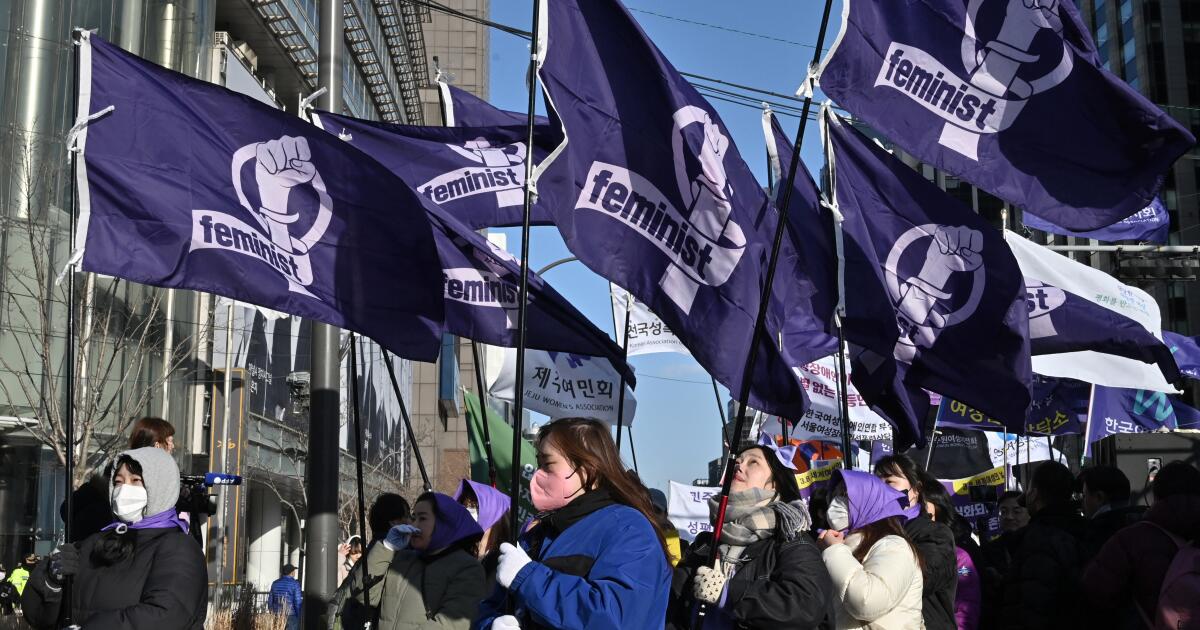
SEOUL — The election of Donald Trump has sparked a surge of interest in the United States in South Korea’s 4B movement, a radical feminist crusade that preaches the four B’s: bi-hon (no marriage), bi-yeonae (no dating), bi-sekseu (no sex) and bi-chulsan (no childbirth).
Since Nov. 5, there have been more than 500,000 Google searches for “4b movement,” while on TikTok, Instagram and X, support for the cause has been trending among young women voters who are vowing to swear off men.
“Ladies, we need to start considering the 4B movement like the women in South Korea and give America a severely sharp birth rate decline,” read one post on X with over 450,000 likes.
“We can’t let these men have the last laugh… we need to bite back”
“Reminder that the 4B movement, and the separatist movement in general, isn’t just about avoiding men—it’s also about supporting and investing in women,” read another.
Here’s what to know about the movement and its impact in South Korea:
What is the 4B movement and when did it come about?
While its exact origins or founder is unknown, scholars and activists agree that the 4B movement began in South Korea sometime after 2015, as part of a wider wave of youth-led radical feminism popularized through online forums.
Its emergence coincided with several major events that have fueled a wider reckoning of South Korea’s gender inequalities in the workplace and violence against women.
One of these events was the murder of a young woman in a public toilet in Seoul’s wealthy Gangnam district in 2016. The assailant, a 34-year-old male with a history of mental illness, later testified to police that he had stabbed the woman — whom he did not know — because he had been shunned by women in the past.
A woman enters a booth to cast her early vote for a presidential election at a local polling station in Seoul in March 2022.
(Ahn Young-joon/Associated Press)
The movement was spurred further by the #MeToo movement’s arrival in South Korea in 2018, the year that also saw mass public protests against the widespread circulation of nonconsensual pornography.
“For women, love, dating, marriage and childbirth were no longer perceived as refuges of peace and safety, but the site of exposure to male violence and subordination,” feminist scholar Yoon-kim Ji-young wrote in 2020, describing the 4B movement as “the complete severing of any emotional, mental, financial or physical dependence on men.”
In recent years, some adherents have expanded the movement into a variant known as 6B, which also calls for bi-sobi (no consumption of products that endorse misogyny or engage in sexist marketing) and bi-dop-bi — solidarity between unmarried women.
Despite bursts of virality and media coverage, the movement is still far from mainstream, and given its decentralized online existence, there is no concrete data on how many South Korean women actively identify as “4B.”
One of the most common ways for adherents to signal their commitment is to share social media posts with 4B-related hashtags, such as investment tips for women’s financial independence and photographs showcasing happily unmarried lives.
Some cities, Daejeon and Gwangju among them, also have 4B-themed offline communities where followers can socialize through sports, book clubs or skills-building workshops.
Some feminist scholars and activists in South Korea have criticized these lifestyle-oriented aspects of the 4B movement, arguing that individual acts of opting out ultimately do little to meaningfully advance women’s sex and reproductive rights in society at large. “At the center of young women’s commitment to 4B is the desire to focus on themselves,” feminist scholar Cho Joo-hyun wrote in 2020.
“The logical endpoint of that is becoming a successful individual in neoliberal society,”
Where does South Korea stand on gender equality?
By many gender equality metrics, South Korea lags behind much of the industrialized world.
The wage gap between men and women is the largest among the 38-member Organization for Economic Cooperation and Development (OECD), a group of wealthy countries, with South Korean women paid on average a third less than their male counterparts. In the World Economic Forum’s 2023 Global Gender Gap Index, which measures gender parity across economic opportunities, education, health and political leadership in 146 countries, South Korea is ranked 105th.
Disparities remain stark in the home as well. In households where both spouses work, women spend an average of 187 minutes a day on domestic work while men spend just under one-third of that — 54 minutes — according to government data from 2019.
Violence against women has also been criticized as an area of long neglect. Dating violence has seen a sharp increase in the country of 51 million, rising from 49,225 reported cases in 2020 to 77,150 last year, according to police. In addition, women in the country are victimized by deep-fake pornography at the highest rates in the world, according to an analysis of online content between July and August last year by U.S.-based cyber-security firm Security Hero.
In South Korea’s last election, conservative President Yoon Suk Yeol’s campaign was widely criticized for making misogynist appeals to young male voters, with Yoon denying that structural sexism exists and promising to raise penalties for false rape accusations.
Has the 4B movement managed to pull down South Korea’s birthrate?
Despite claims on social media that the 4B movement is behind South Korea’s dismal fertility rate, there is little evidence to back this up.
South Korea’s fertility rate — the average number of children a woman has in her lifetime — currently sits at 0.72, the lowest in the world and far below the 2.1 needed to maintain a stable population. Like most advanced economies, South Korea’s fertility rate has steadily been falling since 1980. Researchers have attributed its first significant dip in 2001 — to “lowest-low” levels of under 1.3 — to the labor market shocks caused by the 1997 Asian Financial Crisis.
In more recent years, rising housing and child-rearing costs as well as workplace pressures forcing women to choose between motherhood and their careers have driven the figure down even further.
And while it is true that young South Koreans are increasingly disillusioned with marriage in favor of childless or single lifestyles, these changes are not exclusive to women. Today, just 28% of South Korean women and 42% of men in their 20s see marriage as necessary, dropping from around 50% and 70% in 2008, according to government data.
-

 Health7 days ago
Health7 days agoLose Weight Without the Gym? Try These Easy Lifestyle Hacks
-

 Culture6 days ago
Culture6 days agoThe NFL is heading to Germany – and the country has fallen for American football
-

 Business5 days ago
Business5 days agoRef needs glasses? Not anymore. Lasik company offers free procedures for referees
-

 Sports6 days ago
Sports6 days agoAll-Free-Agent Team: Closers and corner outfielders aplenty, harder to fill up the middle
-

 News3 days ago
News3 days agoHerbert Smith Freehills to merge with US-based law firm Kramer Levin
-
/cdn.vox-cdn.com/uploads/chorus_asset/file/25724877/Super_Nintendo_World.png)
/cdn.vox-cdn.com/uploads/chorus_asset/file/25724877/Super_Nintendo_World.png) Technology4 days ago
Technology4 days agoThe next Nintendo Direct is all about Super Nintendo World’s Donkey Kong Country
-
Business1 day ago
Column: OpenAI just scored a huge victory in a copyright case … or did it?
-

 Health1 day ago
Health1 day agoBird flu leaves teen in critical condition after country's first reported case











